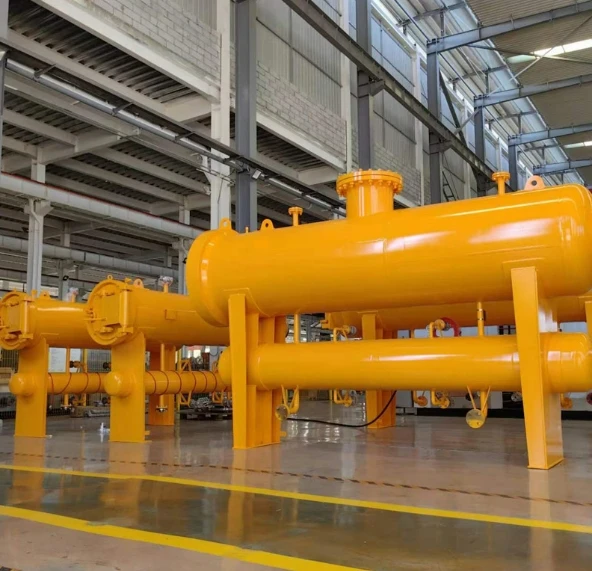
Nov . 30, 2024 08:00
Back to list
Creating a Filter Separator for Enhanced Data Processing
Understanding the Concept of Filter Separator Its Importance and Applications
In the world of industrial processes, the filter separator plays a crucial role in ensuring the quality and integrity of the end products. It is primarily designed to separate different phases, particularly liquids from gases, as well as to remove particulates from various substances. This article explores the function, importance, and applications of filter separators in various industries.
What is a Filter Separator?
A filter separator is a mechanical device that combines the functions of filtration and separation. It is typically employed in settings where mixtures of solid and liquid, or liquid and gas, need to be processed. The device usually consists of a series of mesh screens or filters that trap particulates, along with a separator section that allows for the distinct phases to be isolated effectively.
The operation of a filter separator involves several key processes. First, the mixed fluid enters the separator and flows through a series of filter media. Here, particulates are trapped and removed. Then, the fluid moves into a separation chamber where the different phases can naturally separate due to differences in density. For example, in applications dealing with oil and water, the lighter oil will rise to the top while the denser water settles at the bottom, allowing for easy extraction.
Importance of Filter Separators
Filter separators are essential for several reasons
1. Quality Control In many applications, the presence of impurities can significantly affect the quality of the final product. For instance, in the oil and gas industry, the removal of water and particulates from crude oil is vital to ensure that it meets the required standards for transportation and refining.
3. Environmental Compliance Industries today are increasingly held accountable for their environmental impact. Filter separators help companies meet various regulatory requirements by ensuring that effluents are treated and that contaminants are removed before discharge.
filter separator

4. Operational Efficiency The presence of contaminants can lead to operational issues, including clogging and increased maintenance needs. By ensuring that only clean fluids are processed, filter separators enhance the overall operational efficiency of systems.
Applications of Filter Separators
Filter separators find applications across various industries, including
- Oil and Gas They are extensively used in the extraction and processing of crude oil. In offshore platforms, filter separators are crucial for separating water and gas from oil to ensure that only pure hydrocarbons are sent for refining.
- Chemical Processing In the chemical industry, filter separators are employed to purify raw materials and finished products. They are crucial for removing unwanted residuals that could affect product quality.
- Water Treatment They play a significant role in water treatment plants, where they help in separating sludge from wastewater, thereby assisting in the recycling and purification of water.
- Food and Beverage In the food industry, filter separators are used to clarify liquids and remove particulates from juices and other beverages, ensuring that the final products meet safety and quality standards.
- Pharmaceuticals In the pharmaceutical sector, cleanliness is paramount. Filter separators ensure that products are free from contaminants, which is crucial for compliance with health regulations.
Conclusion
The filter separator is a vital component in many industrial processes, contributing to quality, efficiency, and safety. With the increasing emphasis on environmental sustainability and compliance, the importance of filter separators is set to grow. As technology advances, we can expect to see innovations that enhance the efficiency and effectiveness of these systems, ensuring they continue to meet the evolving needs of various industries. By understanding and utilizing filter separators appropriately, businesses can achieve better operational success while adhering to safety and environmental standards.
Next:
Latest news
-
Safety Valve Spring-Loaded Design Overpressure ProtectionNewsJul.25,2025
-
Precision Voltage Regulator AC5 Accuracy Grade PerformanceNewsJul.25,2025
-
Natural Gas Pressure Regulating Skid Industrial Pipeline ApplicationsNewsJul.25,2025
-
Natural Gas Filter Stainless Steel Mesh Element DesignNewsJul.25,2025
-
Gas Pressure Regulator Valve Direct-Acting Spring-Loaded DesignNewsJul.25,2025
-
Decompression Equipment Multi-Stage Heat Exchange System DesignNewsJul.25,2025

